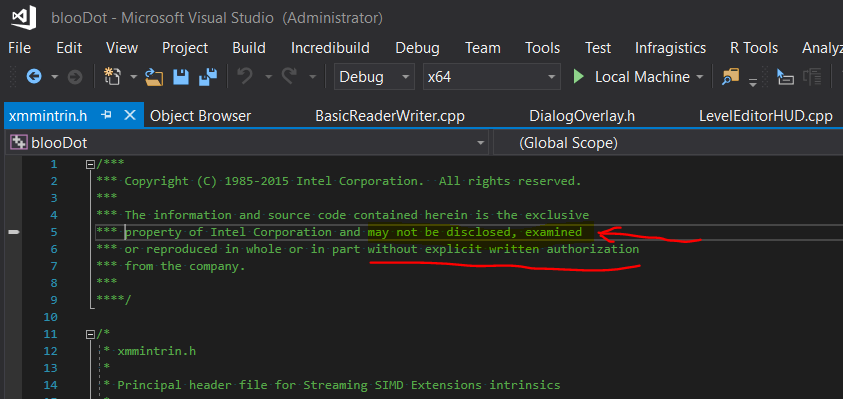We have an open source project going on Github and so far, have been able to comply with all licensing terms and conditions of libraries used, to the best of our knowledge.
Today when debugging, I ended up with an exception in this file:
Transcript, emphasis mine:
Copyright (C) 1985-2015 Intel Corporation. All rights reserved.
The information and source code contained herein is the exclusive property of Intel Corporation and may not be disclosed, examined or reproduced in whole or in part without explicit written authorization from the company.
I would venture to examine it rather thoroughly now, for diagnostic and bug-fixing purposes. Is this already a transgression, and how to avoid?
As to previous research, I've rarely encountered such a clause before and when I did, it meant that I was not supposed to have that source code file on my machine in first place. Is this file (and many more, similarly) wrongfully included in the SDK? Microsoft themselves do not mention this in the SDK licence, DirectX licence, at least not in a way for laymen to grasp.
Answering commenters' questions:
I'm in the jurisdiction of the European Union (Austria),
location of the file on my computer running Windows 10:
C:\Program Files (x86)\Microsoft Visual Studio\2017\Enterprise\SDK\ScopeCppSDK\VC\include
It was put there by the installer software of the Microsoft Visual Studio 2017 Enterprise product, for which I legally own the required licences.
